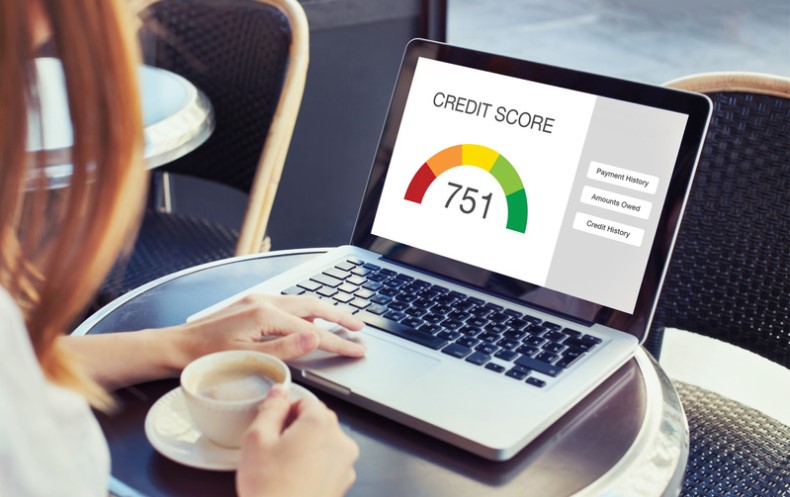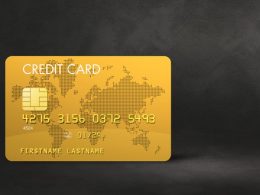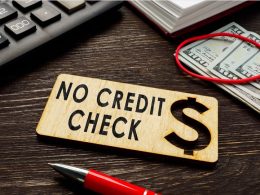Are you curious about your RBC credit score? Your credit score plays a crucial role in getting approved for loans, mortgages, and even rental applications. Knowing where you stand can help you make better financial decisions and improve your overall creditworthiness. In this blog post, we’ll show you how to check your RBC credit score, provide tips on increasing it, and share some free tools that will come in handy along the way. So let’s dive into the world of RBC credit scores!
How to Check Your RBC Credit Score?

Checking your RBC credit score is a straightforward process that can be done in just a few minutes. There are different ways to access your credit score, including online banking, mobile apps, or third-party websites.
If you’re an RBC client with online banking, you can check your credit score by logging into your account and clicking on the “Credit Score” tab. You’ll see a summary of your credit report along with important details such as payment history, balances owed, and length of credit accounts.
Another way to check your RBC credit score is through their mobile app. Simply download the app from Google Play or App Store and log in using your RBC Online Banking credentials. Once inside the app, navigate to the Credit Score section to view all relevant information about your current financial standing.
There are also third-party websites like Borrowell that provide free access to Equifax Canada’s consumer credit reports. These sites will ask for some personal information before granting you access to view detailed insights into what affects your overall financial health.
Checking your RBC Credit Score has never been easier, thanks to the various options available at our fingertips!
How to Increase Your RBC Credit Score?
Your RBC credit score is significant when applying for loans, mortgages, and credit cards. A high credit score increases your chances of getting approved with lower interest rates and better loan terms. Here are some tips on how to increase your RBC credit score:
- Pay all your bills on time. Late payments can significantly affect your credit score negatively.
- Keep your balances low on any outstanding debts or loans you have. High balances can make it seem like you’re overextended financially.
- Don’t close old accounts, as these positively impact the length of your credit history.
- Fourthly, avoid opening new accounts frequently, as this could signal financial instability and hurt your score.
Check for errors or inaccuracies in your report regularly to ensure there’s nothing holding back an otherwise healthy rating. Following these steps consistently over time while keeping track of changes in ratings periodically will help improve overall scores!
Is RBC Credit Score Free?

- One of the most common questions asked by RBC customers is whether checking their credit score with RBC is free. The answer is yes; you can access your credit score through RBC for free.
- RBC offers its clients a service called CreditView Dashboard, where they can monitor and check their credit scores as often as they wish without any fees. This feature also provides tips on how to improve their credit score and alerts them when there are significant changes in their report.
- It’s important to note that while obtaining your credit report from RBC is free, it does not apply to other services, such as requesting a hard copy of your report or getting additional information about your financial situation. These may come with a fee, but accessing your basic credit score through the CreditView Dashboard remains completely free.
- If you’re an RBC client looking to keep track of your credit health and stay on top of any changes to your report, be sure to take advantage of this fantastic resource provided by the bank at no cost!
Can I Check My RBC Credit Score Through My RBC Mobile App?
RBC offers its clients the convenience of checking their credit scores through the RBC Mobile app. This feature is available for both iOS and Android users, making it accessible to a wide range of customers. To check your RBC credit score on the mobile app, simply log in using your credentials and navigate to the ‘Accounts’ section.
Once you’re there, select ‘Credit Score’ to view your current score and any changes or updates. The RBC Mobile app also provides additional details such as credit utilization rate, payment history, and other relevant information that can help you understand how your credit score is calculated.
It’s important to note that while this service is free for RBC clients, it may not be available for all account types or in all regions. Be sure to check with your local branch or contact customer service if you encounter any issues accessing your credit score through the mobile app.
Being able to check your RBC credit score through the mobile app provides a convenient way for customers to monitor their financial health on the go.
Top 3 Free Credit Check Tools
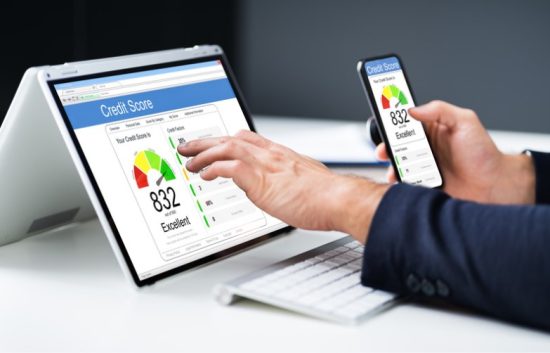
When it comes to checking your credit score, there are numerous free tools available online. Here we have listed the top three free credit check tools that you can use to monitor and track your RBC credit score.
1. Equifax
Equifax is one of the leading credit reporting agencies in Canada. It collects financial information from various sources and creates a credit report for individuals. This report includes a summary of your credit history, such as personal loans, mortgages, and credit card balances.
By checking your Equifax score regularly, you can keep tabs on any changes or discrepancies that may affect your overall financial health. The Equifax score ranges from 300 to 900 points, indicating how well you manage your debt and other financial obligations.
It’s important to note that Equifax has been subject to data breaches in recent years, which have compromised millions of people’s personal information. As a result, it’s essential to keep track of your accounts and contact them immediately if you suspect any fraudulent activity.
On top of keeping an eye on your own scores with Equifax’s tools, they also provide identity theft protection services for their clients, which assures security against fraudulent activities related to account openings or takeovers.
2. Transunion
Transunion is one of the leading credit bureaus in Canada that collects and maintains credit information on consumers. They provide access to credit reports and scores for individuals who want to monitor their credit health and make informed financial decisions.
One of the benefits of using Transunion is their Credit Monitoring service, which alerts customers when changes or updates are made to their credit file. This can help identify potential fraud or errors early on, allowing individuals to take action before any damage is done.
In addition, Transunion offers a range of educational resources and tools to help consumers understand how their credit score is calculated and what factors impact it. This includes personalized recommendations for improving your score based on your individual circumstances.
Transunion may be worth considering if you’re looking for a reliable source for monitoring your credit health and accessing helpful resources for managing your finances.
3. Borrowell
Borrowell is a Canadian fintech company that provides free credit score monitoring and personalized financial recommendations. Founded in 2014, Borrowell aims to help Canadians make better financial decisions by giving them easy access to their credit scores and insights on improving them.
With over one million users, Borrowell offers a range of services, including free weekly credit score updates, alerts for any changes in the user’s credit report, and personalized loan recommendations based on the user’s profile. Users can also access educational resources such as articles and videos on personal finance topics.
One of Borrowell’s most popular features is its partnership with Equifax Canada, allowing users to check their credit reports for free once a year. This feature is especially important since errors or inaccuracies on a credit report can impact one’s ability to obtain loans or other forms of credit.
Borrowell has been praised for its transparency and ease of use. It offers a valuable service that helps Canadians take control of their finances without paying high fees or navigating complex financial systems.
Where to Check Credit Report for Free?
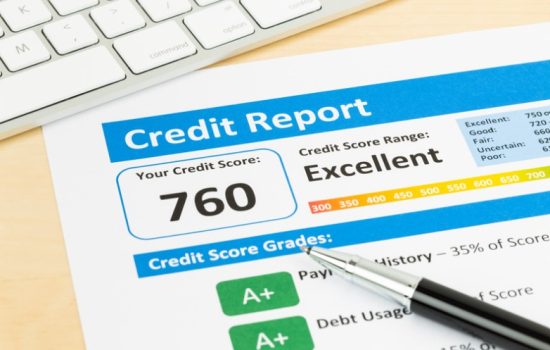
If you’re looking to check your credit report for free, a few options are available. One of the most popular is AnnualCreditReport.com, which allows you to access your credit report from each of the three major credit bureaus once per year. This can be a good way to view your credit history overall.
Another option is Credit Karma, which offers free access to your TransUnion and Equifax credit reports and weekly updates on changes to those reports. While this service does offer some helpful tools for managing your finances, it’s important to note that their scores may differ slightly from what lenders see.
Borrowell also provides free access to your Equifax credit score and report on a monthly basis. They also offer personalized recommendations for improving your score and finding better financial products.
It’s important to regularly monitor your credit report in order to catch errors or fraudulent activity early on. These free resources let you stay informed about your financial health without breaking the bank.
Conclusion
After going through the different ways of checking your RBC credit score, it is clear that various tools and platforms are available to access this information. Whether you prefer using online platforms or mobile apps, there is an option for everyone.
Remembering that a good credit score is essential when getting approved for loans or other financial transactions is essential. Therefore, checking your credit report periodically and taking steps to improve your score, if necessary, is always advisable.
FAQ – How to Check Your RBC Credit Score?
1. What is a good credit score in RBC?
Your credit score is a three-digit number representing your financial credibility and creditworthiness. A credit score in Canada can be anywhere from 300 and 900, with higher numbers suggesting greater creditworthiness. But what does RBC consider to be a decent credit score?
Generally speaking, an excellent RBC Credit Score would be anything above 800. However, if you have a score between 720 and 799, you still have a very good chance of getting approved for most types of loans or mortgages at competitive interest rates.
A fair RBC Credit Score would range from approximately 650-719. Although it isn’t as high as some lenders might like to see, it’s still enough for you to qualify for many types of loans.
If your RBC Credit Score falls below the average limit (below 650), there may be limitations on borrowing money with reasonable interest rates; however, that doesn’t mean all hope is lost! You can always take corrective actions such as contacting Equifax or TransUnion agencies who can help improve your financial standing over time.
2. Is 650 a bad credit score in Canada?
Whether 650 is a bad credit score in Canada depends on the context. Generally, credit scores range from 300 to 900, with a higher score indicating better creditworthiness. A score above 650 in Canada is considered good, and you may be eligible for loans and credit cards at competitive interest rates.
However, remember that lenders consider other factors besides your credit score when assessing your loan or credit application. These include your income, employment history, debt-to-income ratio, and payment history.
Moreover, different lenders have varying criteria for approving loans or credits based on risk tolerance. Some may require a higher minimum credit score than others before they approve an application.
Therefore, while having a score of 650 is generally considered good in Canada regarding qualifying for most financial products, it’s important to note that individual lenders can set their own standards for eligibility requirements beyond just the figure of your RBC Credit Score.
3. What is the minimum credit score for the RBC visa?
Knowing the minimum credit score required is important if you’re interested in applying for an RBC Visa credit card. While there is no official minimum credit score requirement for RBC Visa cards, a good rule of thumb is to have a score of at least 650 or higher.
Remember that this is not the only factor RBC will consider when evaluating your application. They may also look at your income, employment status, and other financial information.
It’s important to note that even if you meet the minimum credit score requirement, it does not guarantee approval for an RBC Visa credit card. Your overall financial profile will be taken into account during the application process.
So before applying for an RBC Visa card, take some time to evaluate your current financial situation and make sure you meet all of their requirements. If you don’t quite meet the criteria yet, improve your credit score and build up your finances before reapplying.
4. Can I check my credit score through my bank app?
With the rise of mobile banking apps, many people wonder if they can check their credit scores through their bank app. The answer depends on your bank and the specific app you are using. Some banks do offer this feature, while others require you to use a third-party service for credit monitoring.
If you have an account with RBC, you may be able to check your credit score through their mobile banking app. Simply log in and look for the “Credit Score” option in the menu. Remember that TransUnion, one of Canada’s two major credit bureaus, provides RBC’s credit score information.
Not all banks offer this feature, so it may be worth checking with yours before downloading or updating your mobile banking app. Additionally, even if your bank does not offer direct access to your credit score, other free tools are available for monitoring it regularly.
Remember that regularly checking your credit report can help detect errors or fraudulent activity early on and allow you to take action accordingly.
5. Can I get a 50K loan with a 650 credit score?
Checking your RBC credit score is crucial in maintaining good financial health. With the help of free credit check tools like Equifax, Transunion, and Borrowell, you can stay on top of your credit report and take steps to improve your score if necessary.
Remember that a good RBC credit score is essential for securing loans or mortgages with favourable terms and interest rates. While there is no guaranteed way to get approved for a $50K loan with a 650 credit score in Canada, improving your credit score by paying bills on time, reducing debt levels and disputing errors on your report can increase the chances of getting approved.
By staying informed about what goes into calculating an RBC credit score and being proactive about managing it over time, you’ll be better positioned to achieve long-term financial success.




